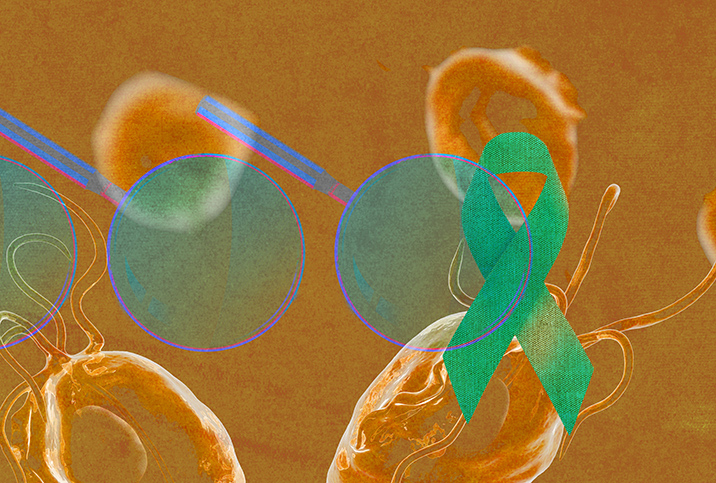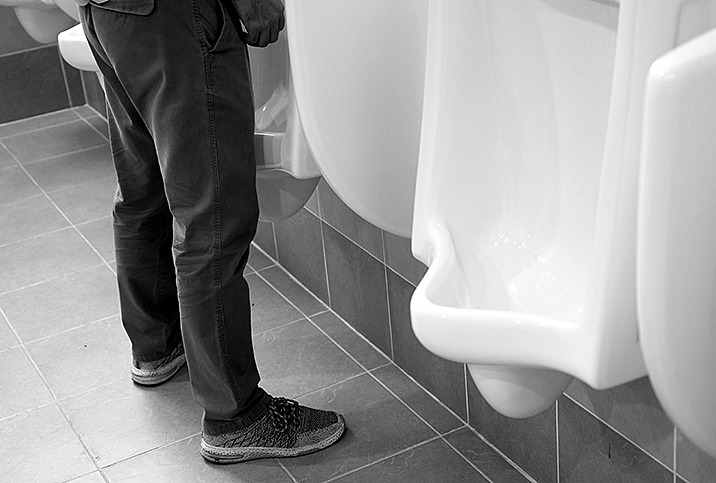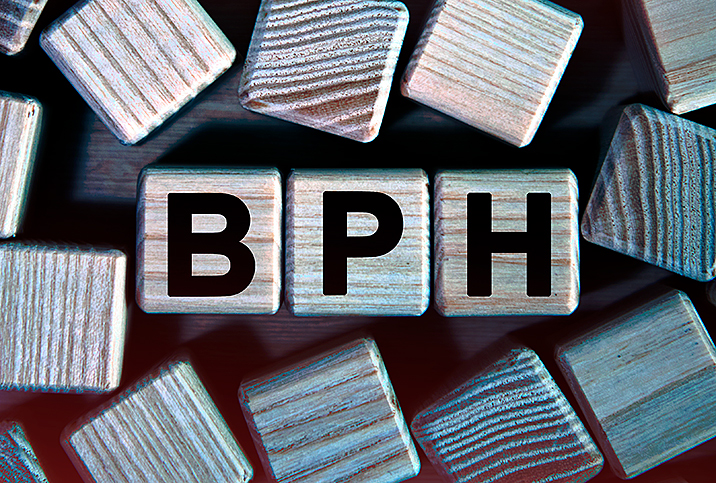BPH Is Not an STI and Cannot Be Spread Through Sex

Benign prostatic hyperplasia (BPH) is also known as prostate gland enlargement or benign prostate enlargement. The condition results from prostate gland growth, much of which is a normal part of aging, which can then lead to urinary symptoms, particularly in older men.
Some symptoms of BPH, such as urinary urgency and frequency, can be similar to other conditions such as prostatitis and urethritis, which might be caused by a sexually transmitted infection (STI). But BPH is not caused by an STI and cannot be passed on to your partner during intimate contact.
The prostate gland enlarges over the course of a man's life, but the cause of the excess enlargement that leads to BPH is unknown. Clinicians believe it is linked to hormonal changes that come with age.
Despite BPH not being sexually transmitted, it can have a negative impact on your sex life.
What exactly is BPH? How do you treat it? What can you do if it's affecting sex?
What is BPH?
BPH is a noncancerous enlargement of the prostate gland, according to James J. Elist, M.D., a urologist in Beverly Hills, California, who specializes in impotence and male sexual dysfunction.
The disease can cause urinary symptoms, such as:
- Frequent urination (especially at night)
- Weak urine flow
- Difficulty starting or stopping urination
- Difficulty emptying your bladder
BPH is a common condition among many aging men, and the likelihood of developing it increases with age.
"It is estimated that 50 percent of men in their 50s, and up to 90 percent of men in their 80s, have symptoms of BPH," Elist said.
It can be worrying to hear your prostate is enlarged, especially since many men think it increases the risk of developing prostate cancer. However, this is not the case. BPH is not linked to cancer and does not increase your risk of prostate cancer.
How is BPH treated?
BPH can be treated using a variety of methods, depending on the severity of symptoms and the overall health of the individual, Elist explained. Treatment options include the following:
- Medications. Alpha blockers and 5-alpha reductase inhibitors are commonly prescribed to relieve symptoms and shrink the size of the prostate gland.
- Lifestyle changes. Decreasing fluid intake before bedtime and avoiding drinks that can irritate the bladder can help reduce symptoms.
- Minimally invasive procedures. Transurethral microwave therapy, transurethral needle ablation, and transurethral laser therapy can relieve symptoms by reducing the size of the prostate gland.
- Surgery. If medications and minimally invasive procedures are not effective, surgery, such as transurethral resection of the prostate (TURP) or open or robotic prostatectomy, may be recommended.
"The appropriate treatment depends on the individual and the severity of their symptoms. It is important to discuss all options with a healthcare provider to determine the best course of action," Elist said.
Sex and BPH
To reiterate: BPH isn't a sexually transmitted infection. You can't pass it to a partner during sex. But that doesn't mean it can't impact your sex life in one of several ways, according to Elist.
"BPH symptoms, such as frequent urination, weak urine flow, and difficulty starting or stopping urination, can interfere with sexual activities and cause physical discomfort," he said.
The need for frequent urination can wake people up at night and affect their sleep, which can have downstream effects on overall health and sexual health.
Erectile dysfunction (ED) also becomes increasingly prevalent as men age, and the cohort of men who get BPH and ED essentially overlaps, explained Charles Welliver, M.D., director of men's health at Albany Medical College in New York, where he is also an associate professor of surgery/urology.
"BPH does not itself cause ED but can cause issues with ejaculation," he said.
There is still a lack of knowledge about BPH and ED and whether or not they are connected, though new and growing data suggest a link, said Michael Werner, M.D., the medical director and founder of Maze Men's Sexual & Reproductive Health, based in New York City and Purchase, New York.
However, Werner said one of the treatments for BPH, tadalafil, can also be used to treat ED. The 5-milligram daily dose of tadalafil (brand name Cialis) is approved to treat ED or the signs and symptoms of BPH in men with one or both conditions. Therefore, it is possible to treat both concerns at the same time.
Five tips if BPH is affecting your sex life
If BPH is affecting your sex life, Elist listed the following five essential tips to help with your concerns:
- Talk to your doctor. It's important to discuss any concerns about sexual function with your healthcare provider. They can evaluate the severity of your symptoms and recommend appropriate treatments to relieve BPH and related sexual problems.
- Consider treatment options. Treatments for BPH such as medications, minimally invasive procedures or surgery can relieve urinary symptoms and improve sexual function. Some medical treatments for BPH may have some potential side effects, such as retrograde ejaculation and decreased sexual activity.
- Practice good self-care. Making lifestyle changes such as reducing fluid intake before bedtime and avoiding drinks that can irritate the bladder can help reduce symptoms and improve overall health.
- Seek support. Talking with a trusted friend, partner or therapist can help men cope with the emotional impact of BPH and any related sexual concerns.
- Try alternative therapies. Alternative therapies, such as pelvic floor muscle exercises and acupuncture, may help improve sexual function and relieve BPH-related symptoms, though not cure BPH itself.
If urinary issues have you up at night or visiting the toilet too often during the day, BPH might be a concern. See your doctor. If you don't have a regular physician, now is the time to find one. Giddy telehealth takes the difficulty out of such a search, providing access to hundreds of healthcare professionals who offer video visits as a regular part of their practices. It is an easy-to-use online portal whose physicians, therapists and others have expertise across the full scope of medical care. Many have same-day appointments.


















